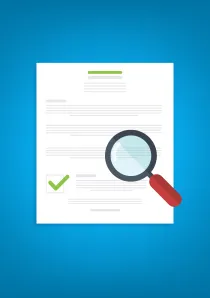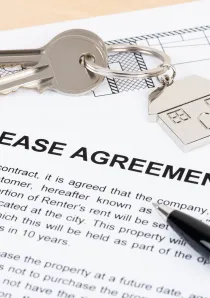
TurboTenant is the all-in-one property management software built to simplify rental management for self-managing landlords. From finding tenants you trust to collecting rent on-time, TurboTenant helps you confidently and professionally manage your rental portfolio. Over 850,000 investors across the country currently use TurboTenant to elevate their rental business.

Without strategic operations in place, your rental properties can result in wasted time, lost profits, and tons of stress. But when done right, it can mean consistent cash flow, long-term wealth, and even financial freedom from your W-2. Operations are everything; your time is too valuable to chase down rent checks, go back and forth with tenants, or even worse – file an eviction.
In this article, we’ll break down the most common ways landlords unintentionally put themselves at risk and provide actionable steps you can take for a successful rental business. Investors in the market already know these tips and have been using them for years, so don’t let yourself fall behind.
Your Rental Advertising Could Use Some Work
If you’re still relying on yard signs or word-of-mouth, you’re missing out. Over half of renters search for their next rental online through sites like Apartments.com, Redfin, and Craigslist. Increase your lead volume by posting on all of these platforms. To save time, use a tool that can publish your listing to multiple sites simultaneously. TurboTenant is a great option that can do this for free.
But before you hit publish, make sure your listing is set up for success. High-quality photos are key: natural light, wide angles, and tidy spaces attract better tenants. Also, highlight unique amenities like wood floors or an on-site gym, and consider a pro photographer or even a 3D tour for maximum success.
Lastly, don’t overlook your title and description. Make it unique and eye-catching, highlight your unit’s best features, and don’t forget about the Fair Housing Act (FHA). The FHA prohibits housing discrimination against protected groups. For example, language like “no families” violates FHA laws because you’re discriminating against familial status. You can read more about protected classes here.
In short, a strong, compliant listing will help you attract better tenants while avoiding legal liability.
You’re Not Vetting Tenants the Right Way
Always, ALWAYS, vet each lead before moving them into your property. It doesn’t matter if they’re a family friend, a referral from a past tenant, or a complete stranger; screen them thoroughly. And that doesn’t mean looking up their social media and calling it good. Use a full tenant background check.
If you’re ready to move forward with a lead, send them a rental application. This application should include standard information, such as name, email, phone number, and move-in date, as well as a comprehensive screening report. A good screening report will give you an accurate look into a tenant’s background, credit, eviction, and criminal history. As a Chicago landlord, make sure you’re compliant with the Just Housing Ordinance, which limits how a landlord can review information they receive from a screening report. For example, you must consider an applicant’s credit and income before reviewing their criminal history.
Finally, make sure you’re using a trusted screening provider. Not all screening services are created equal, and some can even have less than 86% accuracy. We recommend TurboTenant tenant background checks. They partner with Rent Butter for the most accurate tenant background checks in the industry. You can screen a tenant for free here.
Your Lease Isn’t Protecting Your Investment
A rental lease agreement is the foundation of your landlord-tenant relationship and the only thing protecting you, your property, and your tenant. No pressure, but messing it up could cost you big. For best practice, your lease needs to be state-specific, easy to sign, and easily accessible so you and your tenant can reference the document at any time.
What we don’t recommend is repurposing an old lease agreement or using a peer’s. Laws change quickly, and you need to make sure that your lease keeps up with local regulations. You don’t want a court to find your lease unenforceable.
Another option is to pay an attorney to draft one for you. However, we also want to highlight some more affordable, sustainable options for those looking to keep more cash flow. You can customize an online state-specific lease agreement through sites like TurboTenant. It’s easy to tailor the agreement to your property, not miss any essential information, and it can take less than five minutes to complete.
What’s nice about using an online platform is that oftentimes, they come with a free e-signature. It’s super convenient for both you and your tenant, and since everything is online, you don’t have to worry about losing track of this important document.
You’re Not Automating Rent Collection
Rent collection shouldn’t be personal. When collecting rent feels personal, it’s easy for tenants to push off due dates and ignore late fees. It also makes your job as a landlord challenging and awkward. Avoid these problems at all costs.
Again, your time is way too valuable to be chasing down rent checks, messaging tenants, and dealing with back and forth. Our number one tip to prevent rent collection nightmares (and again, protect yourself against potential liability) is to collect rent online so you can automate your process.
Software helps professionalize your rent collection process while making sure tenants pay on-time. Software reminds tenants to pay for you, so you don’t have to be the bad guy. It can also auto-apply late fees for you when rent goes unpaid. To make it even easier, the tenant can set up autopay to never miss a payment and build credit with rent reporting features.
When you use rent collection software, you’ll have a record of who paid what and when, to protect yourself should any issues arise.
You Aren’t Keeping Track of Your Expenses and Income
Efficient rent collection is closely tied to the importance of tracking all incoming and outgoing payments. Bookkeeping is important in any business, and not only will it make your life easier come tax season, you’ll also be able to maximize your rental property-specific deductions.
But without recording and categorizing every rental-related transaction, good luck. Spreadsheets work well for this, but to make it even easier, you can use accounting software. There’s even rental accounting software built specifically for investors.
Software takes your business one step further by automating booking for you, instantly generating the details for your Schedule E, making sure you’re prepared for tax season. Plus, organized books help avoid expensive accounting mistakes, which could cost you thousands.
If you want to grow your portfolio or want to know how your existing doors are performing, you need accurate reporting. Software can run reports for you so you can keep an eye on your business, whether it’s by door, property, or portfolio. TurboTenant has an accounting product that’s purpose-built for investors if you’re ready to get started with better books.
Conclusion
Rental operations are everything if you want a sustainable business and consistent cash flow. The strategies covered in this blog are accessible for any investor, whether you’re just getting started or have been managing for years. Implementing just one of these processes will make your life easier and your business more profitable.
Don’t ignore your operations. Take it from us, you don’t want to deal with prolonged vacancies, messy records, nightmare tenants, evictions, or lawsuits.




